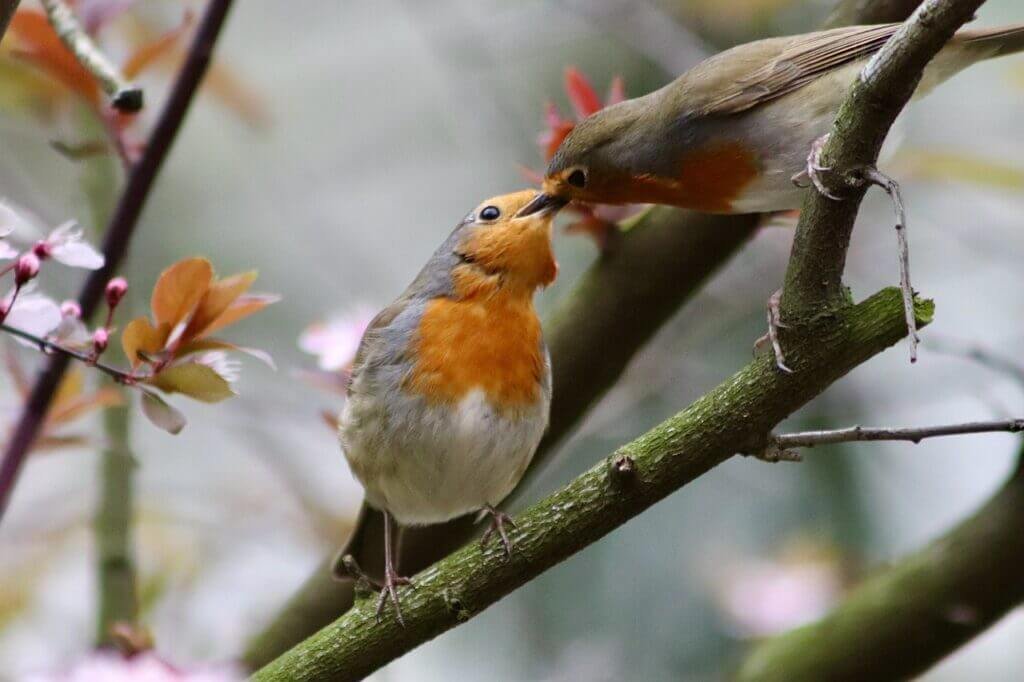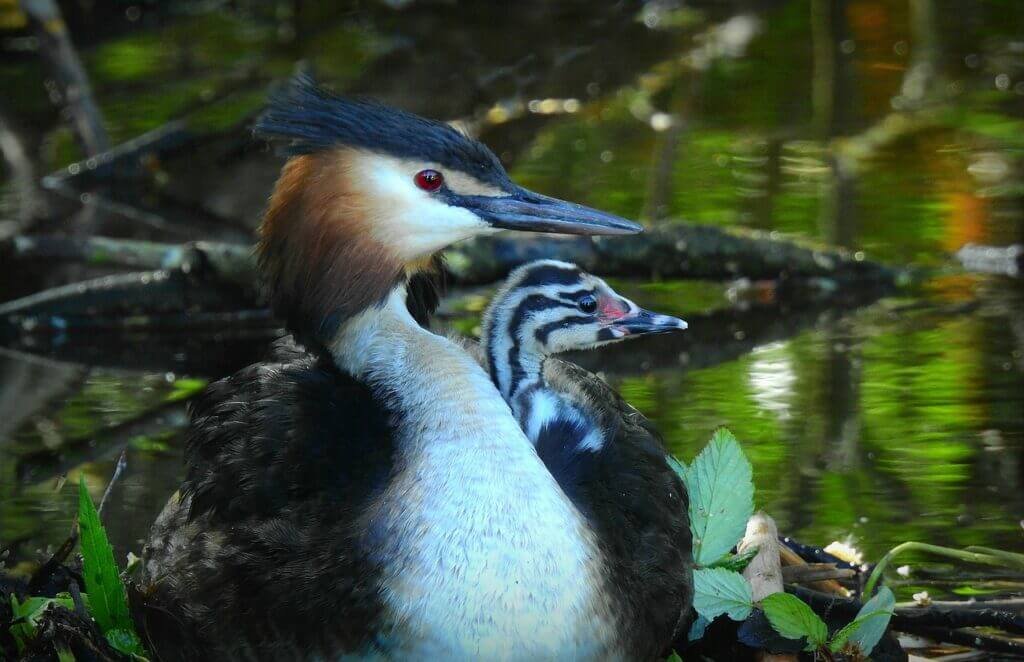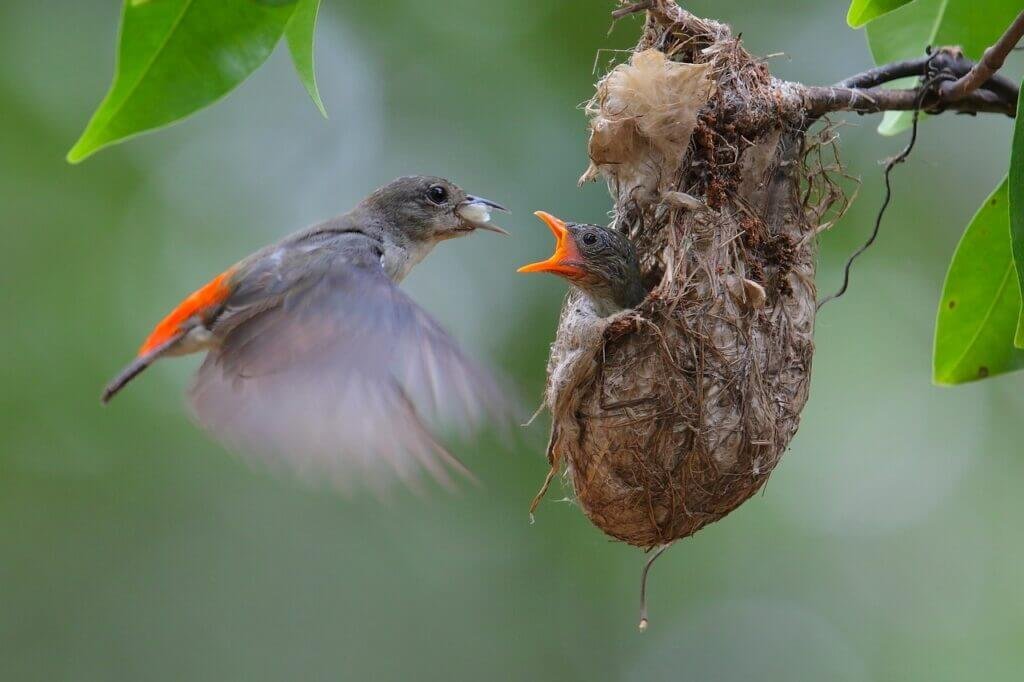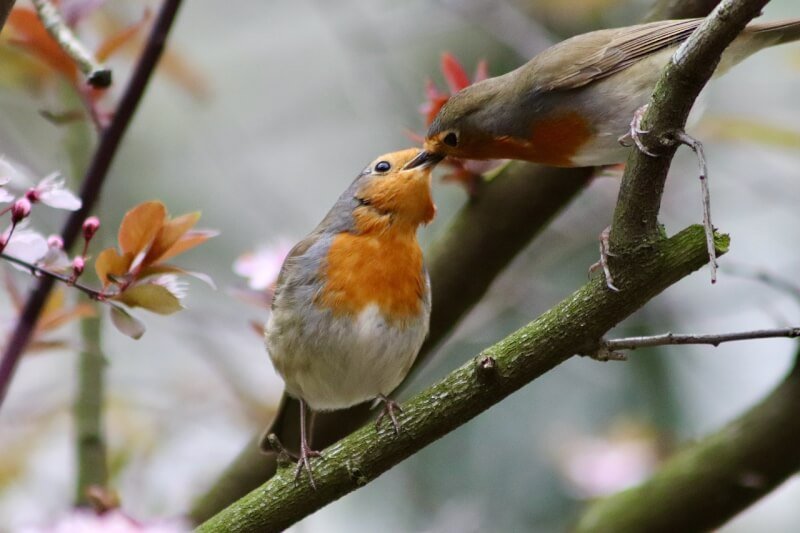So, you’ve stumbled upon a helpless baby bird in need of your care. Don’t fret, because providing proper care for these little feathered friends is easier than you might think! Whether you’ve found a delicate hatchling or a curious juvenile bird, it’s important to understand their unique needs and offer them the care and attention they require. From creating a cozy nest to providing a balanced diet, this article will guide you on the journey of caring for a baby or juvenile bird, ensuring they thrive under your watchful eye.

Feeding
Determining the bird’s diet
When it comes to feeding a baby or juvenile bird, it’s crucial to understand its specific dietary needs. Different bird species have different nutritional requirements, so it’s important to research and consult with avian experts to determine the best diet for your feathered friend. Factors such as species, age, and health condition should be taken into consideration when determining the bird’s diet.
Preparing proper food
Preparing proper food for your baby or juvenile bird requires attention to detail and adherence to recommended guidelines. It is essential to provide a well-balanced diet that includes a variety of fresh fruits, vegetables, and high-quality bird food formulated specifically for the species. Make sure to chop or grind the food into small, digestible pieces and avoid serving any toxic or harmful foods. Proper food preparation ensures that your bird gets the necessary nutrients for healthy growth.
Feeding techniques
Feeding a baby or juvenile bird requires patience, gentleness, and a proper understanding of their feeding habits. Some birds may need to be hand-fed using specialized tools like syringes or feeding spoons, while others can learn to eat independently from a dish. For hand-feeding, it’s crucial to follow the correct technique to avoid causing any harm to the bird. Regular feeding schedules, consistency in food types, and gradually transitioning to self-feeding are essential for the bird’s healthy development.
Housing
Choosing an appropriate enclosure
Selecting an appropriate enclosure for your baby or juvenile bird is vital for its safety and well-being. Consider the size of the bird and its future growth when choosing the cage or aviary. The enclosure should provide enough space for the bird to exercise and move around comfortably. Ensure that the bars of the cage are appropriately sized to prevent escape or injury. Additionally, the material of the cage should be bird-safe, durable, and easy to clean.
Providing a comfortable environment
Creating a comfortable and stimulating environment is essential for the overall well-being of your baby or juvenile bird. Line the bottom of the enclosure with a suitable substrate, such as newspaper or hardwood shavings, and provide perches of varying sizes and materials for the bird to perch and exercise. Offering a range of toys, such as hanging toys, chew toys, and puzzle toys, will help keep your bird mentally stimulated and entertained.
Ensuring safety
When housing a baby or juvenile bird, safety should be a top priority. Ensure that the enclosure is placed in a draft-free area away from direct sunlight, heating vents, or any potential hazards. Avoid using toxic cleaning products or placing any harmful substances near the enclosure. Regularly inspect the cage for any signs of wear and tear, and address any issues promptly to maintain a safe living environment for your bird.

Temperature and Humidity
Maintaining optimal temperature
Maintaining an optimal temperature is crucial for the health and well-being of your baby or juvenile bird. Different bird species have specific temperature requirements, so it’s important to research and understand the ideal temperature range for your bird. Use a thermometer to monitor the temperature in the enclosure consistently and make necessary adjustments to ensure it remains within the appropriate range. Providing a heat source, such as a heating pad or heat lamp, can help maintain a stable temperature for young birds.
Controlling humidity levels
Humidity levels also play a significant role in the well-being of baby and juvenile birds. Some bird species thrive in higher humidity, while others prefer lower humidity levels. Research the requirements of your bird and use a hygrometer to monitor and maintain the desired humidity levels in the enclosure. This can be achieved through the use of humidifiers, dehumidifiers, or by providing a water source within the enclosure.
Monitoring conditions
Regular monitoring of temperature and humidity levels in the bird’s enclosure is essential to ensure optimal conditions. Set a schedule to check and record the readings at designated intervals throughout the day. Monitor for any sudden fluctuations or deviations from the recommended levels. Any significant changes should be promptly addressed to maintain a comfortable and suitable environment for your baby or juvenile bird.
Hygiene
Cleaning the enclosure
Maintaining a clean enclosure is paramount for the health and well-being of your baby or juvenile bird. Regularly clean the cage or aviary by removing any debris, droppings, or uneaten food. Clean and disinfect the enclosure using bird-safe cleaning products approved by avian experts. Scrub the perches, dishes, and accessories thoroughly, ensuring there are no lingering bacteria or mold.
Maintaining cleanliness
In addition to regular cage cleaning, it’s important to establish a routine for maintaining cleanliness in and around the bird’s living area. This includes regularly replacing the substrate, such as newspaper or shavings, in the enclosure. Avoid overcrowding the enclosure with too many toys or objects, as they can collect dirt and be difficult to clean. Keep the area around the enclosure clean and free from potential hazards or contaminants.
Preventing infections
Maintaining good hygiene practices is crucial in preventing infections and diseases in your baby or juvenile bird. Wash your hands thoroughly before and after handling the bird or any of its belongings. Avoid introducing any materials or items into the enclosure that could potentially introduce harmful bacteria or parasites. Regularly monitor the bird’s behavior, droppings, and overall health for any signs of illness, and seek immediate veterinary attention if any abnormalities are observed.

Socialization
Providing companionship
Birds are highly social creatures and require companionship for their overall well-being. As a baby or juvenile bird owner, it’s important to provide them with adequate socialization. Spend quality time with your bird, interact with them, and provide mental stimulation through play and positive reinforcement. Consider adopting a second bird of the same species to provide constant companionship for your bird.
Introducing to other birds
If you decide to introduce your baby or juvenile bird to other birds, take cautious steps to ensure a smooth transition. Gradually introduce the birds in a neutral setting, observing their behavior and reactions. Allow them to interact under supervised conditions and monitor their interactions closely for any signs of aggression or distress. Provide separate spaces within the enclosure for each bird to retreat to if needed.
Handling and interaction
Proper handling and interaction with your baby or juvenile bird are crucial for its social development and trust-building. Start by gently handling the bird from an early age, allowing it to become accustomed to human touch. Use positive reinforcement, such as treats or verbal praise, to reward desired behavior. Avoid sudden movements or loud noises that may startle or frighten the bird.
Healthcare
Regular check-ups
Routine veterinary check-ups are essential for the health and well-being of your baby or juvenile bird. Seek out an avian veterinarian who is experienced in bird care and schedule regular visits to ensure your bird is growing and developing properly. These check-ups allow the vet to assess the bird’s overall health, address any potential concerns, and provide guidance on diet, behavior, and other health-related issues.
Vaccinations and medication
Discuss with your avian veterinarian the necessary vaccinations and medications for your baby or juvenile bird. Some bird species may require specific vaccinations to protect against common diseases, while others may need medication to prevent or treat parasites. Follow the veterinarian’s recommendations and ensure that the necessary vaccinations and medications are administered correctly and on schedule.
Identifying signs of illness
As a responsible bird owner, it’s crucial to familiarize yourself with the signs of illness in your baby or juvenile bird. Look out for changes in behavior, appetite, droppings, and physical appearance. Signs of illness may include lethargy, changes in coloration, discharge from the eyes or nostrils, or difficulty breathing. If you notice any concerning signs or abnormalities, seek immediate veterinary care to address any potential health issues.
Behavioral Stimulation
Providing appropriate toys
Birds, especially young ones, require mental and physical stimulation through appropriate toys. Offer a variety of toys that encourage natural behaviors, such as foraging, chewing, and climbing. These toys can include puzzle toys, bird-safe chewing toys, swings, or ladders. Rotate the toys regularly to keep the bird engaged and prevent boredom.
Encouraging natural behaviors
Encouraging natural behaviors in your baby or juvenile bird is essential for their overall well-being. Allow for opportunities to engage in activities such as flying, perching, and exploring. Provide ample space within the enclosure for your bird to exercise its wings and encourage supervised out-of-cage time for exploration. Mimicking natural environments, such as incorporating branches or natural perches, can also encourage natural behaviors.
Mental and physical exercise
Regular mental and physical exercise are crucial for the development and happiness of your baby or juvenile bird. Engage in interactive play sessions, teaching basic tricks or commands through positive reinforcement. Provide opportunities for flight within a controlled environment, such as a designated flight area or a bird-safe room. Incorporating training sessions and activities into your daily routine will ensure that your bird receives the necessary mental and physical stimulation it requires.
Weaning and Independence
Introducing solid foods
Weaning is an important developmental stage for baby birds, where they transition from being fed solely by their parents to consuming solid foods independently. When your baby bird reaches an appropriate age and shows signs of readiness, gradually introduce small amounts of soft, bird-friendly solid foods. Examples include chopped fruits, vegetables, and small pieces of baby bird food. Monitor their progress and adjust the diet accordingly.
Gradual withdrawal of care
As your baby bird grows, it is essential to gradually withdraw the level of care provided to promote their independence. Encourage self-feeding by gradually reducing the frequency of hand-feeding sessions. Allow the bird to explore and interact with its environment independently, while still providing support and supervision as needed. This gradual withdrawal of care helps the bird develop self-reliance and self-regulation.
Promoting independence
Promoting independence in your juvenile bird is vital for its overall well-being and development. Provide opportunities for flight within a controlled environment, gradually increasing the duration and distance as the bird becomes more confident and proficient. Encourage exploration outside of the enclosure while ensuring a safe and bird-proofed space. Providing mental and physical stimulation through toys, activities, and positive reinforcement will foster independence.
Monitoring Development
Tracking growth milestones
As a bird owner, it is important to track the growth milestones of your baby or juvenile bird. Record and monitor the bird’s weight, wing feathers’ development, and overall physical appearance. Consult with avian experts or veterinarians to compare your bird’s growth progress with species-specific norms. Regularly update these records to ensure the bird is growing at a healthy rate.
Ensuring proper development
Besides physical growth, ensuring proper development in terms of behavior and social skills is crucial for a baby or juvenile bird. Observe and encourage the bird’s natural behaviors, such as preening, playing, and vocalizing. Provide opportunities for social interaction, both with humans and other birds, to promote behavioral development. Regularly evaluate the bird’s progress and seek professional advice if you have concerns about its development.
Noticing any abnormalities
Careful observation is essential in identifying any abnormalities or potential health issues in your baby or juvenile bird. Look for signs such as stunted growth, abnormal feather development, changes in behavior, or difficulty in performing basic activities. Any concerns or abnormalities should be promptly addressed by seeking advice from avian experts or veterinarians to ensure proper intervention and care.
Resources and Support
Consulting avian experts
When caring for a baby or juvenile bird, consulting avian experts is invaluable. Avian veterinarians, bird behaviorists, or experienced bird breeders can provide guidance on various aspects of bird care. Seek their expertise when determining the bird’s diet, creating an appropriate environment, or addressing any health-related concerns. Avian experts can offer personalized advice based on your specific bird species and circumstances.
Getting help from bird rescue organizations
Bird rescue organizations can be an excellent resource for bird owners, particularly those caring for baby or juvenile birds. These organizations often have experienced volunteers or staff members who can provide guidance, support, and additional resources. They may offer educational materials, workshops, or even fostering opportunities. Reach out to local bird rescue organizations to access their expertise and support network.
Joining bird owner communities
Connecting with fellow bird owners through online or local communities can provide a wealth of knowledge and support. These communities often consist of experienced bird owners who can share their experiences, tips, and offer advice. Participate in forums, social media groups, or attend bird enthusiast gatherings to expand your network and learn from others’ experiences. Building a supportive community ensures you have a network to turn to when seeking advice or sharing concerns about your baby or juvenile bird’s care.
Remember, providing proper care for a baby or juvenile bird requires dedication, knowledge, and a genuine love for these fascinating creatures. By following these guidelines, seeking professional advice when needed, and continuously educating yourself about your specific species, you can create a nurturing and enriching environment that will ensure your bird’s well-being and happiness for years to come.


